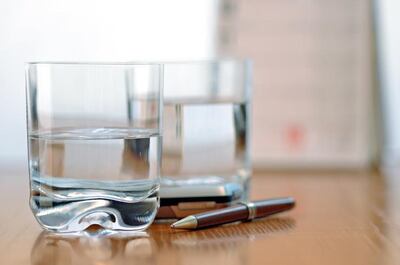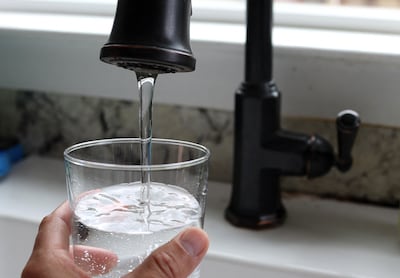Is it possible to drink too much water? The answer, we are learning, is yes.
Following the recent news of Ashley Summers, 35, an American mother of two, who died after drinking two litres of water in under half an hour, it is clear that there is a level beyond which water intake becomes dangerous.
For anyone living in a hot climate, this is a matter of concern. Who hasn't had the urge to slug a bottle or two of water to combat the heat? While we certainly need water to thrive and survive, we can apparently, have too much of a good thing.

On July 4, Summers reportedly complained to her family about feeling extremely thirsty and lightheaded, and as if she “couldn't drink enough water”. After drinking two litres in 20 minutes, she collapsed in her garage and died without regaining consciousness. Her cause of death has been given as fatal water intoxication.
Water poisoning
Consuming too much water too quickly is called hyponatremia, where sodium levels in the body become diluted.
As Dr Riyaz Usman, general practitioner at Aster Speciality Clinic in Pavilion Mall, International City, explains: “Drinking excessive water in a short span of time can lead to water toxicity, also referred to as water poisoning or water intoxication. Normally, the body maintains a delicate balance of electrolytes and fluids, and excessive water intake can disrupt this balance. When an individual consumes an excessive amount within a short period, the kidneys struggle to excrete the excess water, leading to a dilution of electrolytes in the body.
“The kidneys can eliminate about 20–28 litres of water a day, but they can remove no more than 0.8 to 1.0 litres every hour,” adds Usman.
Other people taking part in the “75 Hard” TikTok challenge, which involves consuming a gallon (3.75 litres) of water a day, have also complained of feeling ill due to too much water. One user, Michelle Fairburn, ended up in hospital for water poisoning on day 12. On social media, she explained of having a “band of fire” in her abdomen and lower back, as well as “major diarrhoea”. She was later diagnosed with severe sodium deficiency.
Drinking at a normal rate allows the kidneys to keep pace, excreting excess water as usual. However, if an excessive amount of water is consumed in a very short time frame, the kidneys can no longer keep up, causing the blood to become over-diluted, and sodium and electrolytes levels in the blood to drop.
Sodium is crucial for nerve impulses, muscle function and maintaining the proper mineral balance within the body, while electrolytes are vital for regulating muscle contractions. Too little can impact the heart, impairing its ability to beat properly. Too much water also causes our brain cells to expand, creating pressure inside the skull.
Drink right
The good news is that it is quite hard to drink too much water by accident. However, for those who live in hot climates, or who take part in intensive sports, the risk rises.
Faced with a raging thirst, the temptation is to guzzle endless water; however, aim to drink no more than 1.5 litres an hour. This allows the kidneys to keep pace and maintain correct levels within the body.

Look to drink water consistently throughout the day, rather than gulp large lots in one go. Don't be tempted, for example, to down a large bottle straight after hitting the gym. Instead, drink a few mouthfuls and stop.
If you still are too hot, you are better off pouring the water over your head than down your throat.
Signs to look out for
The symptoms of water toxicity can be varied and range from mild to severe, says Usman. “Initially, individuals may experience nausea, vomiting and headaches. As the condition progresses, more severe symptoms such as confusion, seizures, muscle weakness, and even a comatose state can occur.”
As fluid builds up in the brain, called cerebral edema, this can impact the brainstem and disrupt the central nervous system. In very severe cases, “water toxicity can be life-threatening”, adds Usman.
If you think you have consumed too much water too quickly, stop drinking immediately, and if possible, try and eat something salty to restore sodium levels. Do not be tempted to drink salty fluids, as this can be equally poisonous, and do seek medical advice.
If you suspect someone else could be over-hydrated, stop them from drinking and seek immediate medical help, as they might need a drip to rebalance mineral levels.






